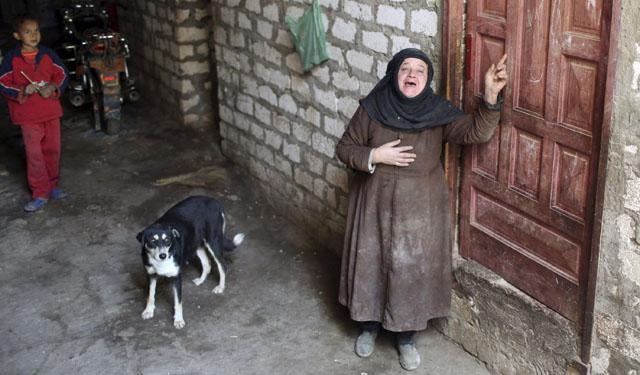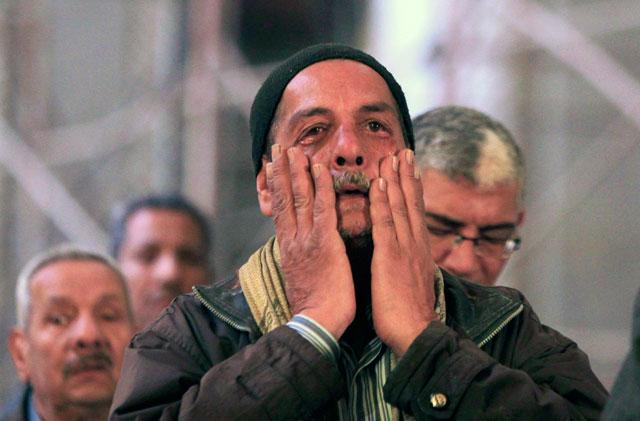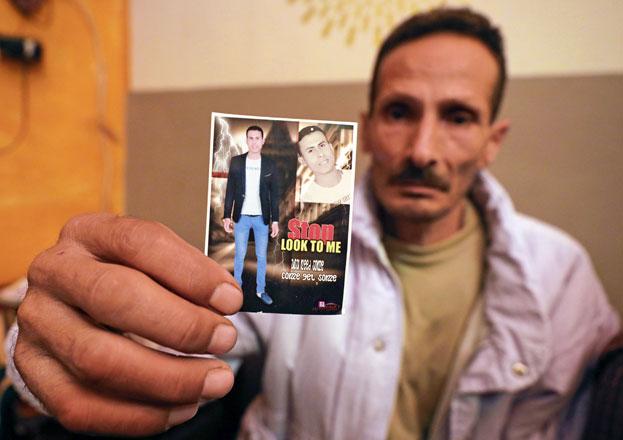You are here
Jobless and desperate, Egyptians risk all in perilous Libya
By Reuters - Jan 28,2015 - Last updated at Jan 28,2015

AL OUR, Egypt — Facing grim economic prospects at home, desperate young Egyptians are seeking jobs in Libya, a country sliding into lawlessness where armed groups battle for control and dozens of their compatriots have been kidnapped.
Tackling unemployment in Egypt, where half of the rapidly growing population is under 25, is one of the toughest challenges facing President Abdul Fattah Al Sisi.
He rules a country that has seen two presidents deposed in the past four years. The 2011 popular uprising that toppled autocrat Hosni Mubarak was fuelled by anger over joblessness.
Affording a home and getting married is still difficult under Sisi for many young men unable to make a living.
The political and social unrest since Mubarak was ousted has deterred foreign investors and tourists from Egypt, the world's most populous Arab nation with 90 million people. This has exacerbated the jobs crisis, and the unemployment rate has climbed from 8.9 per cent to 13 per cent in that time.
Thousands of Egyptians have travelled to neighbouring Libya in search of jobs since 2011, despite their government advising against going to one of the most dangerous countries in the region.
They can be seen working in building sites, factories, restaurants and shops in cities across Libya, which has descended into chaos since a revolt toppled Muammar Qadhafi four years ago and where two rival governments vie for power.
In the Egyptian village of Al Our, about 200km south of Cairo, it is easy to see why young men take the risk.
There are no paved roads, clean drinking water or adequate health care, the kind of conditions that have driven young men to give up on the state and join militant groups in the past.
Jobless men sit beside a canal filled with stinking and stagnant water.
Samuel Alham lived with his wife and three children, his three siblings and their children, and his elderly parents in a small cement house. Like many young Egyptians, he dreams of one day buying a small plot of land to build his own home.
The 30-year-old's decision to go to Libya to work as a plumber was costly. In December, he was kidnapped on his way back to Egypt.
'How can people eat?'
"I want my son. He went to support his children. He did nothing wrong," said Alham's weeping mother.
He is among 27 Egyptians, low-paid workers, who have been kidnapped in Libya since August, 13 of them this month.
Their Christian faith may have put them at greater risk. Militants claiming allegiance to Islamic State, the group that has seized swathes of Iraq and Syria, have said they are responsible for the abductions of the "crusaders".
Al Our is in Minya Province, a traditional stronghold of the Muslim Brotherhood, a movement which Sisi has cracked down on since, as army chief, he ousted its president Mohamed Morsi from power in 2013 after protests against Mursi's rule.
The government has said it plans to invest in Minya, a hotbed of militancy under Mubarak in the 1990s, and other parts of southern Egypt after decades of neglect.
But just outside Al Our, cars with Libyan licence plates are a reminder of the tough decisions forced on its residents.
Abanob Ayyad, in his early 20s, was unable to make ends meet or support his younger siblings, let alone save money to buy an apartment so he could get married.
So he tried his luck in Libya, as a construction labourer.
The funds Ayyad sent home to pay for his brother and sister's college education ended abruptly this month when militants stormed his home in the Libyan city of Sirte and dragged him away along with 12 other Egyptian labourers.
"There is no work that can help here. How can people spend, eat, learn," said his mother Aziza Younan. "The country does not help them or treat them fairly... what can they do?"
Flight into unknown
At the World Economic Forum in Davos last week, Sisi said Egypt aimed to lower unemployment to 10 per cent by 2020. He has announced major infrastructure projects such as a second Suez Canal and major roadworks designed to create jobs.
But those promises have yet to stir hope in villages like Al Our.
"I have made all attempts to get a job for my son, either in the government or the private sector, but in vain," said Bushra Shehata, whose son has been looking for a job since graduating from college nine years ago.
"People need connections to get a job," he added, echoing a common complaint made under successive Egyptian leaders.
More than 100 relatives of the 27 kidnapped workers protested outside the United Nations offices in Cairo last week after meeting Egyptian foreign ministry officials.
Holding up pictures of their loved ones, they urged the government to help secure their release. One tearful man was desperate for information about his son and three nephews.
Officials have said they are doing their best to help.
But across town, more and more Egyptians lined up to buy tickets at Libyan Airlines offices.
One of them, a furniture painter who came back from Libya five months ago hoping for work in Egypt, said he had no choice but to return despite the growing risks.
Heavily armed gunmen stormed a luxury hotel in Tripoli favoured by Libyan officials and visiting delegations on Tuesday, killing at least nine people, including foreigners, before blowing themselves up with a grenade.
"We are going and it is God who is protecting us," said the painter, before rushing to the airline ticket counter when his number was called.
Related Articles
Facing grim economic prospects at home, desperate young Egyptians are seeking jobs in Libya — a country sliding into lawlessness where armed groups battle for control and dozens of their compatriots have been kidnapped.
AL OUR, Egypt — Tears mixed with joy on Tuesday as the remains of 20 Christians were laid to rest in Egypt's Minya province more than three
AL HERDA, Egypt — Armed men in an eastern Libyan city have kidnapped 16 Egyptian workers over a financial dispute between Libyan contractors














